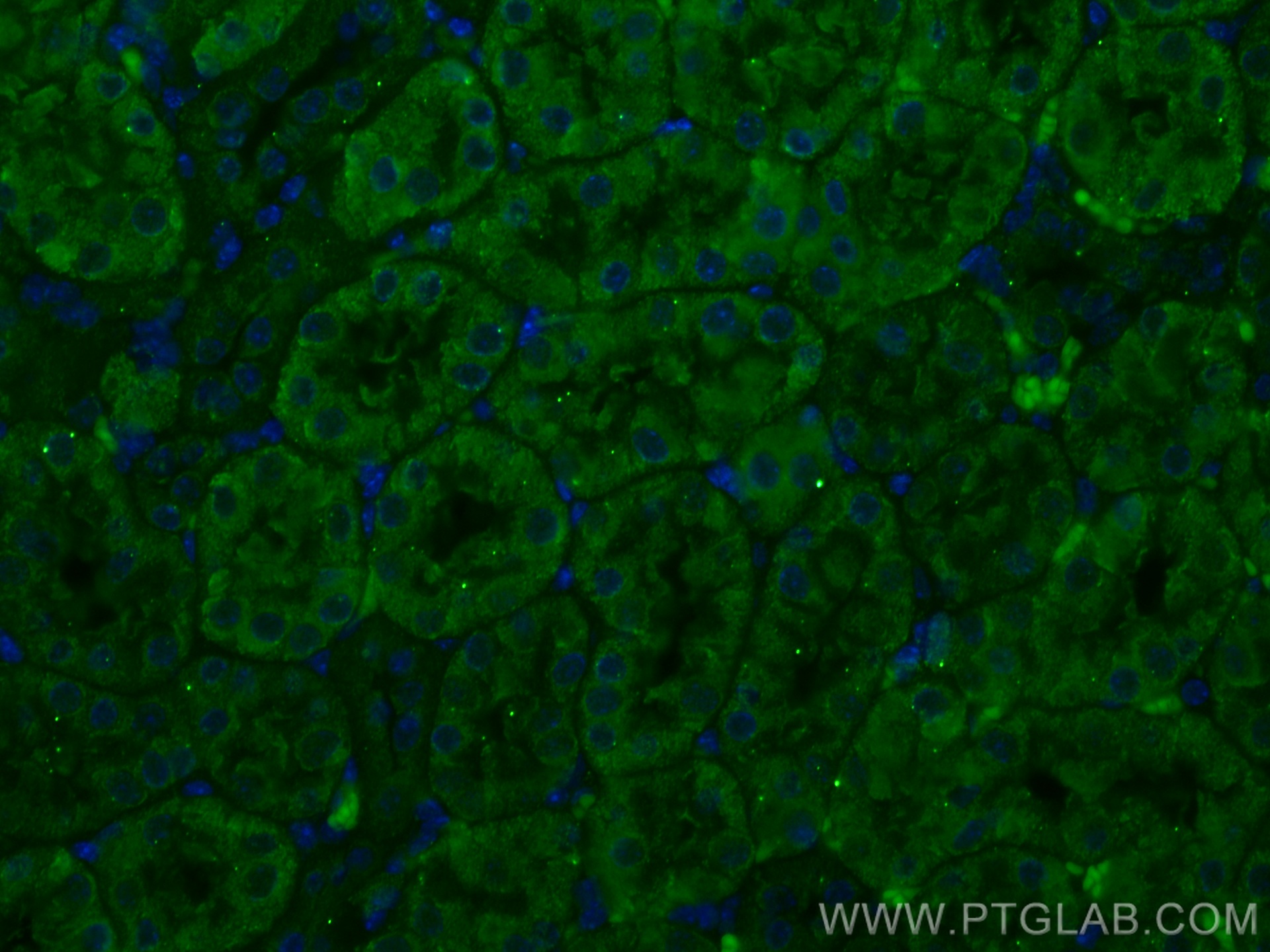验证数据展示
经过测试的应用
| Positive IF-P detected in | mouse kidney tissue |
推荐稀释比
| 应用 | 推荐稀释比 |
|---|---|
| Immunofluorescence (IF)-P | IF-P : 1:50-1:500 |
| It is recommended that this reagent should be titrated in each testing system to obtain optimal results. | |
| Sample-dependent, Check data in validation data gallery. | |
产品信息
CL488-66772 targets SSTR5 in IF-P applications and shows reactivity with Human, Mouse, Rat samples.
| 经测试应用 | IF-P Application Description |
| 经测试反应性 | Human, Mouse, Rat |
| 免疫原 | SSTR5 fusion protein Ag18615 种属同源性预测 |
| 宿主/亚型 | Mouse / IgG1 |
| 抗体类别 | Monoclonal |
| 产品类型 | Antibody |
| 全称 | somatostatin receptor 5 |
| 别名 | somatostatin receptor 5, Somatostatin receptor type 5, SS 5 R, SS5 R, SS5R, SSTR5 |
| 计算分子量 | 364 aa, 39 kDa |
| 观测分子量 | 41 kDa |
| GenBank蛋白编号 | BC146576 |
| 基因名称 | SSTR5 |
| Gene ID (NCBI) | 6755 |
| RRID | AB_2934495 |
| 偶联类型 | CoraLite® Plus 488 Fluorescent Dye |
| 最大激发/发射波长 | 493 nm / 522 nm |
| 形式 | Liquid |
| 纯化方式 | Protein G purification |
| UNIPROT ID | P35346 |
| 储存缓冲液 | PBS with 50% glycerol, 0.05% Proclin300, 0.5% BSA , pH 7.3 |
| 储存条件 | Store at -20°C. Avoid exposure to light. Stable for one year after shipment. Aliquoting is unnecessary for -20oC storage. |
背景介绍
Somatostatin is a widely distributed peptide with a broad range of biological actions. Two biological forms of somatostatin exist: somatostatin-14 and -28. Somatostatin receptors (SSTR1, 2A and B, 3, 4 and 5) belong to the G protein coupled receptor family and have a wide expression pattern in both normal tissues and solid tumors (PMID: 23872332). SSTR5 has greater affinity for somatostatin-28 than somatostatin-14 (PMID: 8373420).
实验方案
| Product Specific Protocols | |
|---|---|
| IF protocol for CL Plus 488 SSTR5 antibody CL488-66772 | Download protocol |
| Standard Protocols | |
|---|---|
| Click here to view our Standard Protocols |

